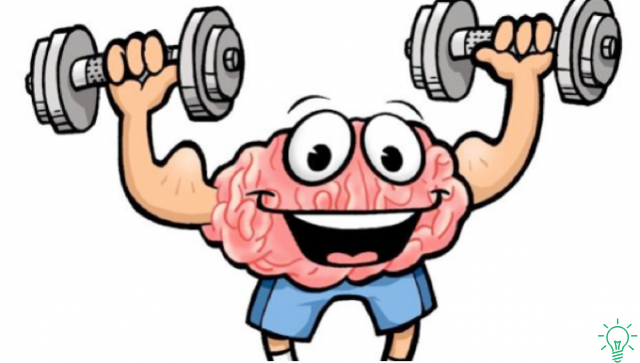
Sporting activity has always been known for its obvious physical benefits, but in recent years scientific research has also highlighted the psychological benefits of sport. In fact, physical activity and sport can positively affect your mental health. Let's see immediately what are the psychological benefits of sport.
The 9 psychological benefits of sport:
Sport improves mood (font)
Do you want an explosion of happiness and relaxation? Get involved in physical activity. Whether it's playing a sport, working out at the gym, or going for a walk, physical activity triggers the production of chemicals in the brain that make us feel happier and more relaxed. Solo sports offer the opportunity to relax and improve your fitness. Team sports, in addition to physical benefits, also provide social benefits by allowing you to connect with friends in a recreational setting.
Sport improves concentration
Regular physical activity helps maintain your cognitive abilities even as you age. This includes logical skills, learning, and the use of common sense. Research has shown that a combination of aerobic and muscle-strengthening activities is particularly beneficial. Doing this type of activity 3-5 times a week for at least 30 minutes can provide these psychological benefits.
Sport reduces stress and depression
When you are physically active, your mind is distracted from everyday stress. This can help unravel negative thoughts. Exercise lowers the levels of stress hormones in the body. At the same time, it stimulates the production of endorphins. These are natural mood boosters that can help keep stress and depression at bay. Endorphins can also leave you more relaxed and upbeat after a hard workout on the court. Experts agree that more research is needed to determine the relationship between sports and depression.
Sport improves sleep (font)
Sports and other forms of physical activity improve the quality of sleep. They do this by helping you fall asleep faster and allowing you to sleep deeper. Better sleep can improve your mental abilities the next day, as well as your mood. Just be careful not to play sports too late in the day. Evening workouts within the hours before bedtime can leave you too charged for sleep.
Sport increases self-confidence
The regular exercise that comes with playing sports can help boost your confidence and improve your self-esteem. As you increase your strength, ability, and endurance through sport, you will also improve your self-image. Sport provides a sense of mastery and control, which often leads to a feeling of pride and self-confidence. With the renewed vigor and energy that come from physical activity, you're more likely to succeed at tasks on and off the field.
Sport has been linked to leadership skills (font)
Team sports like soccer, baseball, and basketball are fertile ground for future leaders. Studies conducted in high schools reveal a correlation between athletic participation and leadership qualities. Thanks to the opportunity to train, practice, win or lose together, people involved in sports are naturally more inclined to adopt a "team mentality" in the workplace and in social situations. The team mentality leads to strong leadership qualities over time.
Psychological benefits for young children.
Sport can benefit children in many of the same ways that it benefits adults. The biggest difference is that when children start participating in sports at a young age, they are much more likely to continue playing sports as they get older. The same source suggests that participation in a team sport improves academic performance, leads to better academic results and translates into a greater capacity for self-fulfillment after school.
Psychological benefits for the elderly.
Sport is not just for young people! Older people who play sports have been shown to be healthier and live longer on average. By staying active as you age, you can strengthen your muscles and bones and reduce your risk of tripping (and getting hurt), cognitive decline, and heart disease.
For other articles on wellness and psychology, go to the dedicated section: Health and Psychology
They may be interested in:
- Quitting smoking: psychological benefits
- 17 Psychological Facts About Love (Useful Tips & Tricks)
- Psychological effects of social networks
- 33 Psychological Tricks and Tricks You Should Know
- Mental manipulation psychological tricks: 12 infallible techniques
- Customer Experience: 4 psychological principles to improve it























